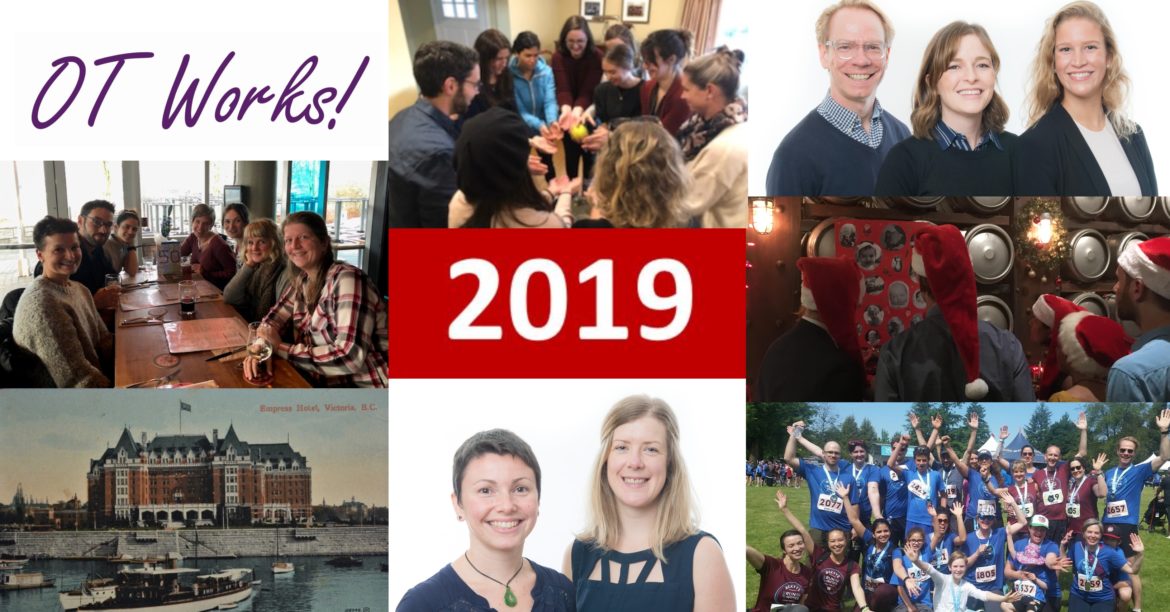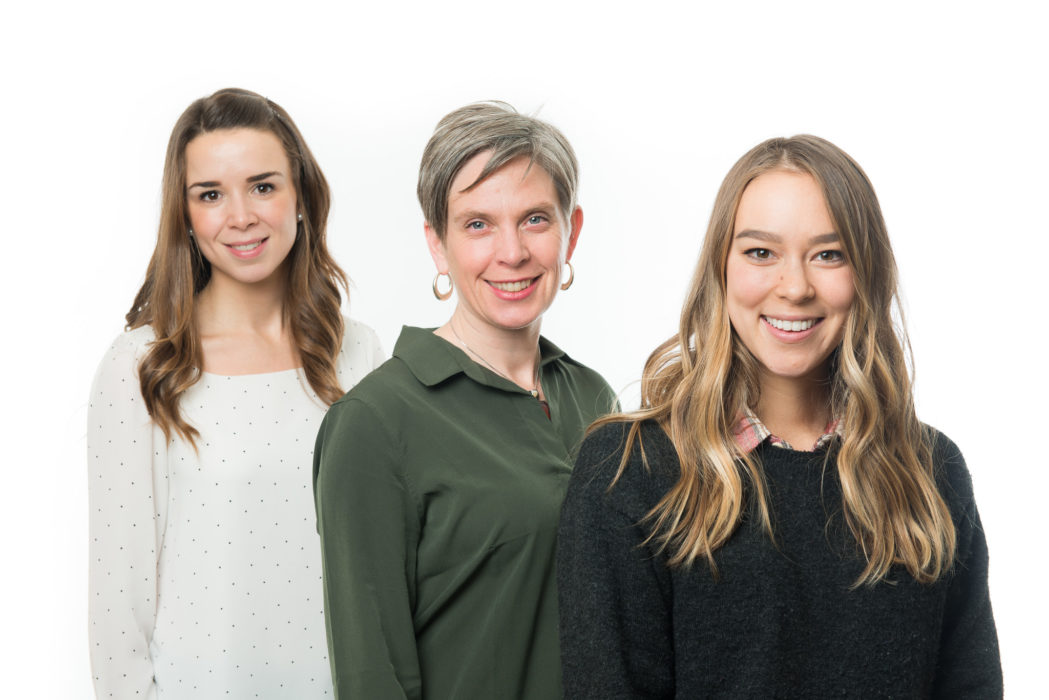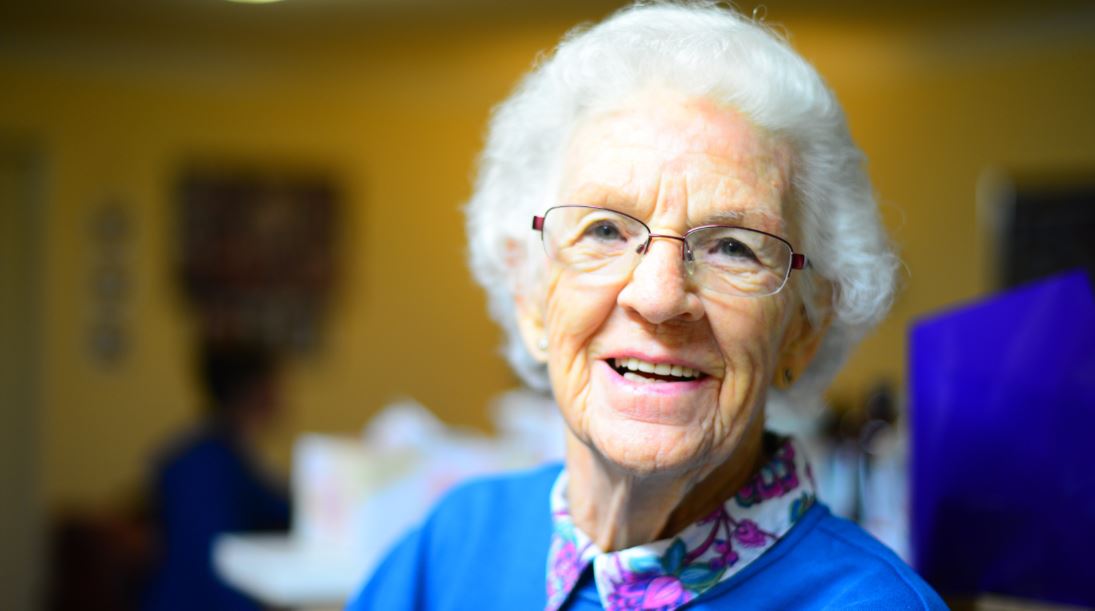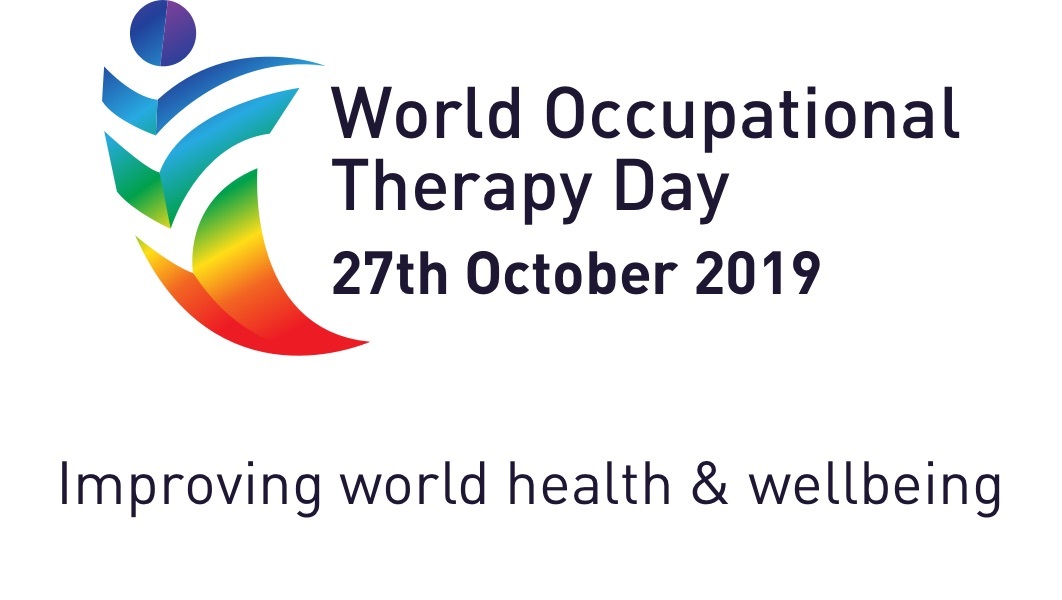23 Healthy New Year’s Resolutions You Can Actually Keep
Develop healthier habits and reduce stress by trying Healthline’s goals. Make sure that you are realistic about what your goal entails so that you can effectively maintain the habit.
When choosing one of these goals, remember to make sure you plan them the SMART way.
- Specific – Know exactly what you want to accomplish.
- Measurable – Track your progress.
- Achievable – Outline the steps you will take to reach your goal.
- Relevant – Ensure the goal fits in with your current and upcoming needs.
- Time-Based – Choose a target completion date and set up check-ins along the way.
Get an OT’s Help
All of our OTs use goal-planning to develop effective and personalized treatment plans for their clients. Our OTs are university-trained and certified by the College of Occupational Therapists of British Columbia (COTBC). Many of our OTs have additional training in physical OT treatment, mental health, and goal-planning.
Contact us today if you or someone you know could benefit from goal-planning with an OT.
Email: referrals@ot-works.com
Phone: 604.696.1066 ext. 1000
2019 – OT Works! Year in Review
Helping Others, Growing, Learning, and Having Fun
As 2019 draws to a close, we reflect on how we have grown as a team and as a part of our wider community this past year. In 2019, OT Works! continued to grow, develop and have fun. We have been privileged to work with amazing people, customers and clients. We love occupational therapy and share our knowledge and skills with others.
- Growing Team and Families: We welcomed four occupational therapists to our team. Welcome Bronwyn, Mathilde, Jodie and Megan! Several of our OTs also welcomed new babies and we celebrate growing, healthy families!
- Vancouver Island: OT Works has expanded to serve Vancouver Island. We now serve Greater Victoria area (Victoria, Esquimalt, Oak Bay, Sooke, Saanich, Sidney, Langford, Colwood, Metchosin) and the Central Vancouver Island (Campbell River, Courtenay, Comox, Cumberland, Fanny Bay, Nanoose Bay, Union Bay).
- Sharing and Learning: We continue to grow and learn from each other through monthly clinical in-services, regular mentor-ship and and informal clinical discussions. Continuous learning, feedback, and collaboration fosters better results and better care.
- Giving Back: As part of our commitment to the health communities and healthy people, we participated and supported the 2019 Run for Water. We are thrilled to have fund-raised and contributed over $2,226 to clean drinking water in Bekyye, Ethiopia. We also supported World Wildlife Fund and Because I am a Girl,
- Having Fun: Getting together and sharing stories and laughter is a big part of what makes being part of the OT Works! team enjoyable. By getting together for regular socials events and sharing stories over coffee, we celebrate our journey as community occupational therapists together.
With Gratitude
We are continually amazed at the breadth of skills our clients have. We feel privileged and honored to have worked with amazing clients this year. We look forward to meeting and helping others in 2020.
From our families to yours, we hope you have a Wonderful Holiday Season and a Joyous New Year!
A Quick Guide to Occupational Therapy Services: After A Motor Vehicle Accident
Occupational Therapy For Your ICBC Claim
After a motor vehicle accident, occupational therapy helps clients implement and maintain a sense of independence and balance in life. Occupational therapists focus on how clients participate in daily activities relative to their surroundings. They collaborate with their clients to help them function safely and effectively at home, work and in the community. Community OT is flexible and uses individualized, goal-oriented approaches in rehabilitation and health management.
When to Refer or Contact an OT
When an individual is injured in a motor vehicle accident in British Columbia, they are eligible to receive OT services under Part 7 Benefits. Usually ICBC requires a referral from a healthcare practictioner for occupational therapy in order to authorize funding. A doctor may recommend OT services if a client:
- Has not returned to work, school, volunteering or other pre-accident roles.
- Is struggling to care for themselves, their family or their home.
- Is still recovering slowly or not at all, despite other treatments.
Assessment
Once we receive a referral, we confirm with ICBC to ensure that funding is available. An OT Works! therapist can then reach out to the client to set up an initial assessment. During the first appointment, the OT will:
- Gain an understanding of the client’s pre-injury status.
- Observe the client doing functional tasks in their real environment(s), as well as standardized testing.
- Discuss a collaborative plan for treatment (if needed).
The therapist then provides a comprehensive report to ICBC and other healthcare providers involved in the client’s care. If necessary, further OT treatment may be recommended.
Throughout the process, OT Works! therapists help our clients be safe and comfortable. We encourage our clients to ask questions and take breaks when needed.
Hospital Discharge Program
When ICBC requests an OT assessment through the Hospital Discharge Program, occupational therapists help create a safe and timely transition to home for clients who have been hospitalized after their accident. Occupational therapists assess the need for adaptive equipment, home modifications or home support services such as cleaning services or a care aide’s support.
Longer-Term Care
OT Works! also helps ICBC clients who have not been hospitalized or who have been recovering for a longer period of time by the time of the referral. The therapist must determine if continuous OT treatment is necessary to enable a successful recovery. The assessment usually takes place at a client’s home or their workplace (e.g. job site visits, ergo assessments).
Treatment
If on-going occupational therapy is determined to be beneficial, then an OT will continue with the client and support their recovery with goal planning, regular appointments and support. Rehabilitation plans are customized for the client’s individual needs and goals. Here are some examples of the services our clients receive and the activities involved:
- Gradual Return-to-Work Planning and Monitoring helps people ease back into their work roles after time-off due to injuries. OTs can provide on- and off-site coaching through education, strategies and coping tools. They organize appropriate assistive and ergonomic equipment and advocate for return to work options with the client’s employer.
- Adaptive Equipment and Mobility Aids are put in place to ensure safety at home and in the community. Examples include adding a ramp or stair lift to navigate multilevel homes or assessing the safety and comfort of wheelchairs for those requiring assistance moving around.
- Exposure Therapy addresses a client’s anxiety, fear and discomfort so that they can actively engage in their community and life again. It is a gradual, step-by-step process that involves safe, accompanied exposure to locations or situations that trigger a client’s anxiety.
- Concussion Management helps people address the symptoms associated with impacts to the head. Occupational therapists provide education about what a typical recovery looks like. They help clients stay active after a concussion without overdoing it and determine strategies to work around the challenges they face.
- The Progressive Goal Attainment Program is an evidence-based program that reduces the barriers of disability by specifically targeting the psychological and social obstacles clients face. Goals are specific, measurable, achievable, realistic & relevant and time-based. We have several therapists that are certified to provide PGAP services.
Occupational therapists also provide a number of other services. Learn more here.
Case Studies: Successful Return to Work & Life
Theses three real-life case studies show the difference occupational therapy can make at various times in the recovery process after a motor-vehicle accident.
Get Started with an OT
All of our therapists at OT Works! are certified with the College of Occupational Therapists of British Columbia (COTBC) and have additional training in areas such as mental health, brain injury rehabilitation, home safety and chronic pain.
If you or someone you know could benefit from occupational therapy after a motor vehicle accident, contact us today! We can help you acquire funding from ICBC and answer any questions you may have.
Email: referrals@ot-works.com
Phone: 604.696.1066 ext. 1000.
ICBC Webpage: https://www.ot-works.com/services/ot-and-icbc-recovery/
Concussion Management: How Occupational Therapy Makes a Difference
Increased awareness about concussions, including expanding research, demonstrates the need for occupational therapy in concussion management. Concussions result in functional changes that can affect a person’s participation in social, work or household activities. As experts in function, OTs are well-equipped to assist clients with concussions. OT Works! regularly helps insurers at ICBC and WorkSafe BC, as well as other third-party insurance companies, to assist clients as they recover.
What is a concussion?
A concussion can result when impact to the head, or a whiplash movement, causes the brain to move quickly and abruptly. There are a variety of symptoms that can occur including:
- Physical symptoms: headache, nausea, dizziness
- Cognitive symptoms: decreased attention, slowed response time, memory difficulties
- Emotional/behavioural symptoms: irritability, sadness, anxiety
- Sleep-related: increased sleep, difficulty falling asleep, difficulty staying asleep
There is increasing evidence against the notion that prolonged rest (after the 24-48 hour mark) improves one’s symptoms. In fact, it is important the clients start to gradually return to their activities within the first few days post-injury. The activity level should not bring on or worsen symptoms.
How can an OT help after a concussion?
Occupational therapists support their clients in returning to daily activities gradually and safely. They provide education regarding concussions and explain what a typical recovery looks like. Experiencing a concussion may be alarming to a person with a head injury. OTs can help their clients understand their symptoms and what they can do about them. OTs often review what is can be expected in recovery and provide strategies to return to the things the cleint wants to do.
OTs recognize the unique potential each client possesses. Together, the OT and client can develop an individualized rehabilitation plan. They address the individual client’s concerns and personal goals. For instance, some clients may require gradual exposure to busier environments over a longer period of time if they experience light or sound sensitivity.
OTs also help their clients who have concussions by:
- Reviewing strategies to be active, without overdoing it: energy conservation, pacing and relaxation techniques
- Determining ways to work around or with challenges, ultimately to enable a successful return to work
- Liaising with other healthcare providers and insurers to ensure a timely and thorough rehabilitation
Get started with an OT for concussion management
All of our therapists at OT Works! are certified with the College of Occupational Therapists of British Columbia (COTBC) and have additional training in concussion management. Our approach is based on current concussion science and best practice.
If you or someone you know could benefit from concussion management with an occupational therapist, contact us today!
Email: referrals@ot-works.com
Phone: 604.696.1066 ext. 1000.
Hello, Victoria!
OT Works! is now providing community occupational therapy services in Victoria and Vancouver Island.
OT Works! is pleased to announce that we are now offering community occupational therapy services to clients and customers on Vancouver Island. OT Works! helps a variety of people, including those who are injured in motor vehicle accidents (ICBC rehabilitation) or workplace incidents (WorkSafe BC programs). We provide workplace solutions (return-to-work services for insurance and disability management providers) and support for Canadian veterans and service members (Veterans Affairs). We also help private clients who need help with home safety or return-to-work support.
Locations Served
We serve clients in their community (homes, workplaces, school and in their community). Our OTs are mobile and come to where the clients live and work, which allows us to better understand our clients and develop meaningful assessment and treatment services that are individualized to each client. On Vancouver Island, our occupational therapists serve clients in the Greater Victoria region, and Central Island area.
Greater Victoria
- Victoria
- Esquimalt
- Oak Bay
- Sooke
- Saanich
- Sidney
- Langford
- Colwood
- Metchosin
Central Vancouver Island
- Campbell River
- Courtenay
- Comox
- Cumberland
- Fanny Bay
- Nanoose Bay
- Union Bay
Occupational Therapy Services
Our occupational therapists provide occupational therapy assessment and treatment services to clients throughout the rehabilitation process. Our community occupational therapy services include:
- Return-to-Work Planning and Support
- Ergonomic Assessments
- Home Health & Safety
- Community Integration
- Concussion Management
- Treatment for Depression and Anxiety
Click here for more info.
Our Therapists
Nicole Chan grew up in Victoria and is happy to provide OT services in her hometown. She serves clients in Greater Victoria and southern Vancouver Island including Victoria, Esquimalt, Sooke, East Sooke, Saanich, Sydney, Langford, Colwood, Metchosin. She has additional training and experience with traumatic brain injuries, ergonomic solutions and mental health rehabilitation.
Mathilde Bleuze serves the Comox Valley(Courteny, Comox) and central Vancovuer Island (Campbell River to Nanoose Bay). She works with a diverse range of clients including older adults, people with musculoskeletal injuries and workers requiring ergonomic assessments.
Contact Us Today
All of our other therapists-including Nicole and Mathilde-are certified with the College of Occupational Therapists of British Columbia (COTBC).
Contact us if you or anyone you know could benefit from occupational therapy services in Victoria or the Central Vancouver Island.
Email: referrals@ot-works.com
Phone – Victoria: (250) 999-8896
Phone – Vancouver: (604) 696-1066 ext. 1000
Occupational Therapy and ICBC Rehabilitation: A Successful Return to Work and Life
Occupational therapists believe that an essential part of recovering from a motor-vehicle accident (MVA), and related injuries, is being able to participate in the activities that mean the most to people. OTs assist ICBC clients as they re-engage in meaningful daily routines or “activities of daily living” (ADLs). OTs recommend early intervention, but occupational therapy can be beneficial no matter how long it has been since the MVA.
The therapists at OT Works! have extensive experience with concussions, mental health and return-to-work planning. They address their clients’ physical, emotional and cognitive needs and use evidence-based practice to empower them. Each client has a unique treatment plan, tailored to their strengths, interests and potential.
The three case studies show how occupational therapy can make a big difference in post MVA-rehabilitation at various times in the recovery process.
0-30 Days Post-MVA
30-90 Days Post-MVA
90+ Days Post-MVA
Get started with an OT
All of our therapists are certified with the College of Occupational Therapists of British Columbia (COTBC) and have additional training in areas such as mental health, brain injury rehabilitation, home safety and chronic pain.
Contact us if you or anyone you know could benefit from occupational therapy, of if you have questions about an an OT can help after an MVA.
Email: referrals@ot-works.com
Phone: 604.696.1066 ext. 1000
OT and ICBC rehab: Emma’s Drive to Explore
When ICBC asked OT Works! for help, Emma was avoiding driving. Her motor vehicle accident (MVA) increased her anxiety and made time management, memory and attention difficult for her. With her OT, Emma learned to better manage her concussion symptoms and other pain. Equipped with evidence-based strategies, she reconnected with the friends and adventures that mattered to her most.
OT Involvement
Referral: 90+ days after the accident
Services:
- Activation
- Cognitive Rehab
- Driving in the Community
- Return to Work Planning
- Return to Work Monitoring and Support
Introducing Emma
Age: 35
Occupation: Secretarial Administrator
Injuries: Concussion; anxiety; soft tissue Injuries to the back, neck and shoulder.
How OT Helped
Emma relies on driving to get to work and hang out with friends. As a result of her motor vehicle accident, her anxiety increased and she took time off work. She was afraid to be behind the wheel again and so avoided driving. She struggled to manage the daily activities in her life and found that recalling and retaining memories were suddenly difficult for her.
Nicole Chan (OT) and Aman focused on cognitive rehabilitation in order to encourage Emma to reconnect with her pre-accident activities. They developed calming techniques, followed checklists and used memory aids. Nicole also rode as a passenger in Emma’s car while they built up Emma’s confidence as a driver. With a return-to-work plan, developed collaboratively, Emma returned to work full-time. At the time of her discharge, she was already driving her friends on local trips and exploring what our neighbourhoods have to offer.
“Thanks to Nicole and her encouragement and strategies, [I] feel more comfortable and confident driving on the road after my car accidents.”
Emma (OT Works! client)
Contact Us
All of our OTs are university-trained and certified by the College of Occupational Therapists of British Columbia (COTBC). Many of our OTs have additional training in physical OT treatment, mental health, and goal-planning.
Contact us today if you or someone you know could benefit from an OT, or have any questions about how an OT can help after an MVA.
Email: referrals@ot-works.com
Phone: 604.696.1066 ext. 1000
OT and ICBC Rehab: Aman’s Positivity
As a busy, young woman, Aman struggled when soft-tissue injuries a motor vehicle accident (MVA) decreased her ability to work and play. She experienced back pain and mood fluctuations that made it difficult to enjoy the things she used to love like cooking and yoga. With goal-oriented occupational therapy, Aman increased her endurance and transformed her outlook on life.
OT Involvement
Referral: 30-90 days after the accident
Services:
- Activation
- Education
- Goal-Planning
- Pain Management
- External Service Recommendations: Physiotherapy, Kinesiology and Massage Therapy
Introducing Aman
Age: 27
Occupation: Lab Technician and Aesthetician
Injuries: Soft tissue injuries to the back, neck and shoulder; fluctuations in mood
How OT Helped
Aman enjoys cooking, yoga and attending the gym. When soft tissue injuries interrupted her ability to be active, she also struggled with her mood and motivation. At the time that she met Jaclyn Forsythe (OT), she wasn’t convinced that occupational therapy would help her return to the activities she loved.
Jaclyn, equipped with her Masters’ education and variety of experience, recognized that Aman could benefit from OT. Together, they set well-structure goals that were realistic and achievable. She also provided Aman with tools and techniques to manage her pain effectively so that she could reconnect with the activities she enjoyed before the accident. With Melissa’s support, Aman fostered a more positive outlook on life and could manage her injuries effectively.
“It was my first time working with an occupational therapist and I have to say I had a very good experience. I didn’t think I needed one in the first place, but now having experience the service I can see how it has helped me with my injury and rehab. Both mentally and physically.”
Aman (OT Works! client)
Contact Us
All of our OTs are university-trained and certified by the College of Occupational Therapists of British Columbia (COTBC). Many of our OTs have additional training in physical OT treatment, mental health, and goal-planning.
Contact us today if you or someone you know could benefit from an OT, or have questions about how an OT can help after an MVA.
Email: referrals@ot-works.com
Phone: 604.696.1066 ext. 1000
OT and ICBC Rehab: Getting Kim Back on Her Feet
ICBC’s Hospital Discharge Program requested an occupational therapist to assist their client, Kim. She had a fractured knee from a motor vehicle accident (MVA) which made it difficult to walk. Kim was concerned that she wouldn’t be able to get around like she used to. But by building a rehabilitation plan with occupational therapy and other services. Kim developed the confidence and strength to get out, walk more and socialize with her friends like she used to.
OT Involvement
Referral: 0-30 Days after the accident
Services:
- Assistive Technology
- Home Safety Assessment
- Hospital Discharge Planning
- External Service Recommendations: Physiotherapy, Kinesiology, and Massage Therapy
Introducing Kim
Age: 84 years old
Occupation: Retired, active community member
Injuries: Right tibial plateau fracture with Open Reduction Internal Fixation (ORIF)
How OT Helped
After her accident, Kim wanted to remain active in her community. She sustained a fractured knee and was using a wheelchair at the time that Melissa Ferguson (OT) began working with her.
Melissa planned Kim’s discharge from hospital. When Kim returned home, Melissa had already ensured that her home was safe and accessible considering her injured knee and mobility constraints. Since Kim is a yoga enthusiast, Melissa encouraged her to keep building her strength that way. They also focused on increasing Kim’s walking endurance. She worked with a physiotherapist, kinesiologist and massage therapist as Melissa recommended.
As her ability to walk improved, Kim enjoyed reengaging with ther friends and activities she loved. She no longer felt interrupted by her injuries and looked forward to enjoying more of her retirement.
“I’ve been very well looked after and I am very grateful!”
– Kim (OT Works! client)
Contact Us!
All of our OTs are university-trained and certified by the College of Occupational Therapists of British Columbia (COTBC). Many of our OTs have additional training in physical OT treatment, mental health, and goal-planning.
Contact us today if you or someone you know could benefit from an OT, or have any questions about how an OT can help after an MVA.
Email: referrals@ot-works.com
Phone: 604.696.1066 ext. 1000
October 27th is World OT Day
World Occupational Therapy Day is on Sunday, October 27th. The theme this year is Improved World Health and Wellbeing, as recognized by the World Federation of Occupational Therapists (WFOT). World Occupational Therapy Day was first launched on 27th October 2010. Since then, it has become an important date in the occupational therapy calendar to promote and celebrate the profession internationally.
OT Works! also celebrates in October with OT Month in Canada. On these special occasions for our profession, we recognize how our work is impactful.
Inclusive care is important to us. We are fortunate to work with clients and customers in British Columbia from a variety of cultural backgrounds. OTs work with all parties involved to ensure that they feel respected, understood and confident in the rehabilitation process. We believe that through collaboration – with the client, their social network, healthcare team members, insurers and legal representation – that meaningful recovery occurs.
Occupational therapy is an expanding discipline. We look forward to participating in new strategies, research and treatments to foster improved health and wellbeing in our communities and across the globe.











